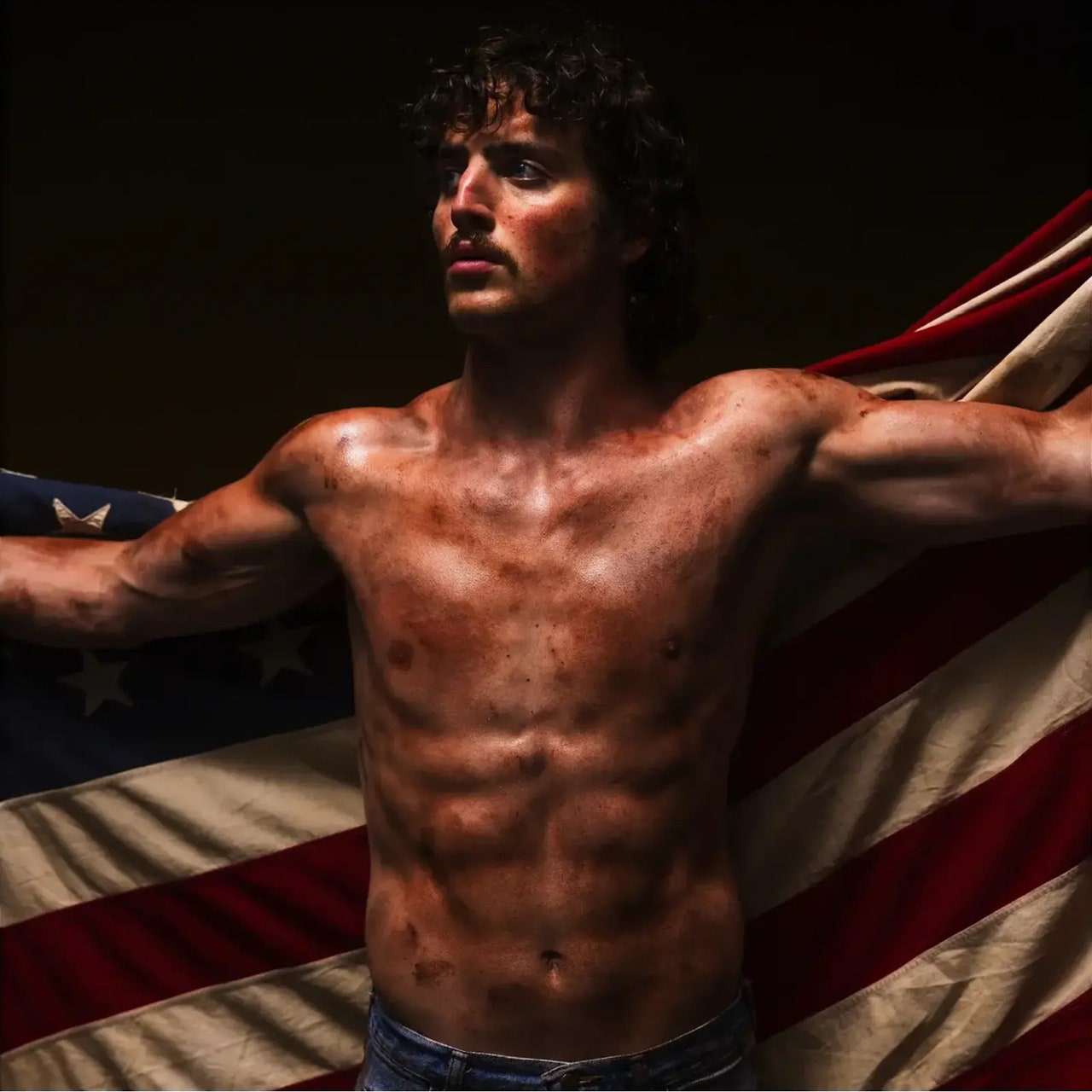Little Richard would prop one leg up on the piano and bang chords with his foot. Jerry Lee Lewis would stand on the piano and stomp the keys. Pete Townshend would smash his guitar to bits. Jimi Hendrix would play guitar behind his head and pretend to have sex with it and then light it on fire. James Brown would pretend to faint then miraculously revive himself. Michael Jackson moonwalked. David Lee Roth did the splits in the air. Freddie Mercury wielded the top half of a microphone stand. Prince would flip the microphone stand up off the stage with his feet, in heels. Elton John wore sequined tuxedos. Deadmau5 wore a giant foam mouse head. Matty Healy ate raw meat. Ozzy Osbourne ate a bat. GG Allin ate his own shit. Benson Boone does backflips.
To be a real showman takes charisma, magnetism, or what they used to call moxie in this business. I’d say it’s a lost art, except the art of the showman is the lingua franca of the online generation. Scroll down any social media feed far enough and witness the new Vaudevillian theatre, an endless line of people auditioning just for you, stealing your attention through some feat, stunt, bit, dance, or trick. Here is the family of oafs who rates Costco food, a cringe dad and his sons who learn all the TikTok dances, the crew who goes dødsing off a dam, the jock trick shot brothers, the DJ on four decks spamming hot cues, the 12-year-old guitarist, the six-year-old drummer, the baby with a noise side project, the guy who walks around New York making songs on a mobile production rig, or the guy who is one of only a few people in the world who learned to do a standing double backflip.
This makes the classic showman—much less the utterly jejune single-backflipping showman—rather conventional. And still, Boone has boinged himself into the global consciousness through his enormous 2024 hit “Beautiful Things.” I’m not one to argue in bad faith, so let me just say that Boone is not just regular talented but rather talented. More talented than me, that’s for sure. I can’t backflip; I can’t sing like he can; I’ve never dropped out of two separate institutions—Brigham Young University and American Idol—to pursue my childhood dream of being a pop star. To admire Boone is like drunkenly admiring an Olympian, in that you’re like, I could probably do this, but you almost certainly cannot.
It’s also important to note that Boone has the drop on us critics here. He’s aware that, following his show-stopping Grammys performance earlier this year, he might be pegged as a one-trick pony forever trying to top the two-billion streaming hit that brought him here. The music video for the lively “Mr Electric Blue,” a dim highlight from his mercifully brief second album, American Heart, begins with a sketch of Boone being summoned into the office of his slimy agent, played by his real-life producer and songwriting partner, Jack LaFrantz. Boone is, indeed, wearing a shirt that says “One Hit Wonder.”
